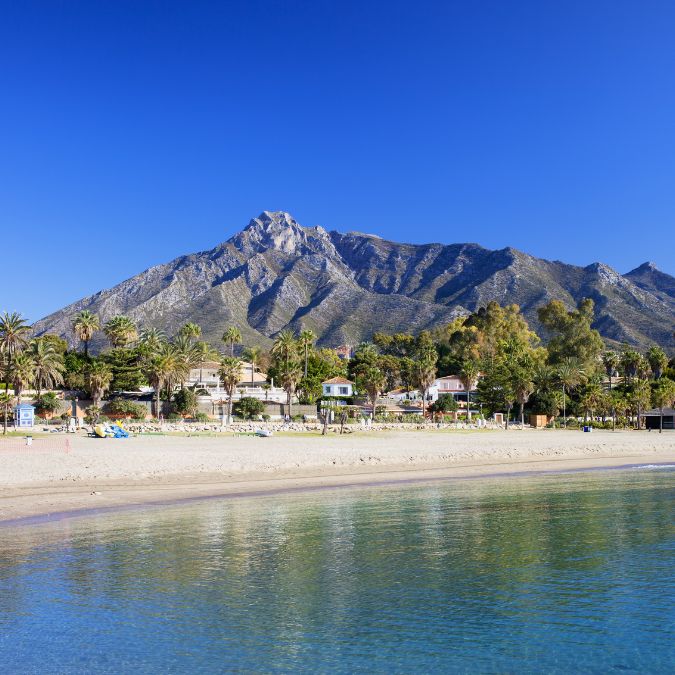Dreaming of escaping rainy days and embracing a vibrant culture with a warmer climate? Moving to Spain from the UK could be your key to unlocking a sun-kissed lifestyle. But before packing up everything and booking your flights, let’s weigh the legal requirements, potential perks, and inevitable downsides of this exciting transition. As a British Expat myself, I made my move in 2001 to the Costa Del Sol and have no regrets. However, that certainly does not mean it is all plain sailing.
Is easy moving to Spain from the UK?
Unfortunately, since the United Kingdom is no longer part of the EU, British Citizens now require a Visa to live permanently in Spain. While this makes things more difficult, there are multiple ways to obtain a Spanish Visa, although not everyone can qualify. It is commonly referred to as a “Golden Visa”. You can find out more about how to qualify and different types of visas in our article all about Spain’s Golden Visa. I personally used the Golden visa route, and although it took longer than anticipated, it was a great way to gain access to this sun kissed paradise.
Without a Golden Visa you will be restricted to Spain’s 90 day rule. This means that you can only stay in the Schengen area (which Spain is a part of) for 90 days in a 180 day period. Basically speaking, count back your last 180 days. If you have been in Spain (or the Schengen area) for over 90 days in that period, you have broken the rules. Both Spain and France are lobbying the EU government to try and remove this restriction, but currently (at time of writing), no progress has been made.
If you are a non UK national moving to Spain, you will need to check requirements based on your nationality and purpose of stay.
Where to Live in Spain?
Deciding where to live in Spain can be difficult. It is a vast country which differs greatly across the various regions. Consider climate, lifestyle and cost of living. I personally chose Costa del sol and found my perfect property searching villas for sale in Marbella. I can recommend reading our guide on buying property in Spain, for excellent insights from our team.
What do I need to do when I arrive in Spain to live?
So you have obtained your Spanish Visa, but what other requirements are needed? Here is my comprehensive checklist.
Essential
- Accommodation – You will need a permanent address for many of the requirements. Initially I rented a short term holiday home and this caused me some delays as I did not have a permanent address.
- NIE – This is your “Foreigner Identification Number” for essential services. In fact you can’t do much without a NIE. I used the help of an “Abogado” (see below) in obtaining mine.
- Spanish Bank Account – To pay for local amenities such as water, electric, tax and more, this is essential. I found that many Spanish banks offer services for expats. You will also be required to have a minimum deposit and ensure you have the means to support yourself in Spain.
- Obtain Your Empadronamiento – You must complete your registration indicating that you live in the local municipality within three months of your arrival.
- Apply for your TIE – TIE stands for “tarjeta de identidad de extranjero”, or foreigner ID card. It is a requirement for any foreigners who needed a visa to reside in Spain.
- Private Health Insurance – You need to fulfill this requirement to apply for permanent residency in Spain.
- Notify the UK that you have left – This means contacting multiple UK offices. You can view the official list here. I personally used my tax accountant to complete this process for me.
Recommended

- Spanish Sim Card – A local phone number can make things easier and cheaper. Many providers such as Lobster Mobile specialise in low cost international plans, for UK expats. I personally use lobster and find it very cost effective and the service is great.
- Schools – If schooling for children is a factor for you, research is essential. Spain has many quality international schools, with a higher concentration around Marbella. This is because of the many expats who have relocated here. Along with researching fees, academic systems, external activities etc, I recommend talking to local people for real insights.
- Work? – If you are seeking employment, it is worthwhile finding out about wages in your region for your profession. This will vary greatly from region to region.
- Learn the language – Use an app or better still, arrange some lessons. Practicing with a teach and classmates is a fantastic way to learn. This will help you integrate better and make many life admin tasks much easier. And in my opinion, it makes life in Spain even more enjoyable.
The Pros of Living In Spain
While these will vary for many, here is my list of upsides of living in Spain as a UK expat.
- Climate: Spain enjoys a warmer climate compared to the UK, with plenty of sunshine throughout the year, especially in southern regions like Andalusia. Around the Costa Del Sol, many winter days are comparaible with Summer in the UK. And, if you do miss a cold winter, the ski slopes of Sierra Nevada are just a few hours drive from the Costa Del Sol.
- Cost of Living: The cost of living in Spain can be lower compared to certain parts of the UK, particularly in terms of property prices and everyday expenses like food and transportation. Of course, in demand areas wil have higher prices.
- Quality of Life: Spain is renowned for its relaxed lifestyle, with a focus on enjoying leisure time, good food, and cultural activities. The pace of life is often seen as slower and more laid-back.
- Cultural Experience: Living in Spain provides an opportunity to immerse yourself in a rich and diverse culture, including its language, traditions, and cuisine.
- Healthcare: Spain has a reputable healthcare system, with many UK citizens benefiting from reciprocal healthcare agreements between the UK and Spain, particularly retirees. I personally use private helthcare, and have found it to be excellent.
The Cons Of living in Spain

- Bureaucracy: Dealing with Spanish bureaucracy can be frustrating and time-consuming, especially when it comes to paperwork related to residency, taxes, and other official matters. Some things can take longer than the UK.
- Integration Challenges: Adjusting to a new culture and way of life can be challenging, particularly if you’re not fluent in Spanish. Building a social network and feeling fully integrated into the community may take time. In many areas, you will find that there are large groups of friendly expats keen to lend a hand. They have all done it before and know how important it is to have friends to help. While often seen as a negative, we found some great new friends after asking for help with things.
- Legal and Financial Considerations: Navigating the legal and financial aspects of living in Spain, such as taxes, property ownership laws, and healthcare access, can be complex and require careful planning. It is easily solved throught the use of an Abogado.
Both me and my family thoroughly enjoy living here and we have no regrets in moving to Spain from the UK. If you want to discuss your move or have any questions, please contact our team. We would be happy to answer any questions that you might have.

